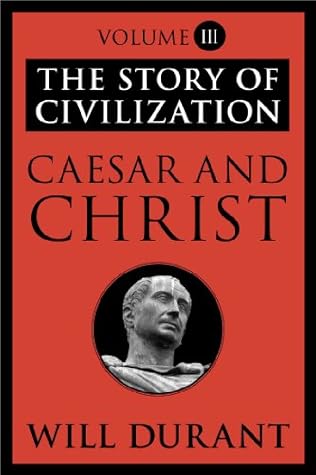More on this book
Community
Kindle Notes & Highlights
by
Will Durant
Read between
June 21 - December 29, 2022
Some men, led by gluttony, rush off to join in drinking bouts, as if they were laying in provisions for a siege. . . . The less expensive foods are always more helpful. . . . When, in a precipitate retreat, Artaxerxes Memnon had nothing to eat but barley-bread and figs, he exclaimed, “What a pleasure is this, which has never been mine before!”
Philosophy does not mean reading books about wisdom, it means training oneself in the practice of wisdom. The essence of the matter is that a man should so mold his life and conduct that his happiness shall depend as little as possible upon external things. This does not require a hermit’s solitude; on the contrary, “Epicureans and blackguards” are to be condemned for detaching men from public service; the good man will take his part in civic affairs. But he will accept with equanimity all vicissitudes of fortune—poverty, bereavement, humiliation, pain, slavery, imprisonment, or death;
Our English term gospel (Old English godspel, good news) is a rendering of the Greek euangelion, which is the opening word of Mark, and means “glad tidings”—that the Messiah had come, and the Kingdom of God was at hand. The Gospels of Matthew, Mark, and Luke are “synoptic”: their contents and episodes allow of being arranged in parallel columns and “viewed together.”
Christian writers before 100 quote the Old, but never the New, Testament. The only reference to a Christian gospel before 150 is in Papias, who, about 135, reports an unidentified “John the Elder” as saying that Mark had composed his gospel from memories conveyed to him by Peter.15 Papias adds: “Matthew transcribed in Hebrew the Logia”— apparently an early Aramaic collection of the sayings of Christ.
Moved by his own somber spirit and remorse, and his transforming vision of Christ; influenced perhaps by Platonist and Stoic denunciations of matter and the body as evil; recalling, it may be, Jewish and pagan customs of sacrificing a “scapegoat” for the sins of the people, Paul created a theology of which none but the vaguest warrants can be found in the words of Christ: that every man born of woman inherits the guilt of Adam, and can be saved from eternal damnation only by the atoning death of the Son of God.VI 50 Such a conception was more agreeable to the pagans than to the Jews. Egypt,
...more
In the beginning was the Logos; the Logos was with God, and the Logos was God. . . . All things were made by the Logos; without him nothing was made that was made. It was by him that all things came into existence. ... So the Logos became flesh and blood, and dwelt amongst us. Just as Philo, learned in Greek speculation, had felt a need to rephrase Judaism in forms acceptable to the logic-loving Greeks, so John, having lived for two generations in a Hellenistic environment, sought to give a Greek philosophical tinge to the mystic Jewish doctrine that the Wisdom of God was a living being,83 and
...more
From Egypt came the ideas of a divine trinity, the Last Judgment, and a personal immortality of reward and punishment; from Egypt the adoration of the Mother and Child, and the mystic theosophy that made Neoplatonism and Gnosticism, and obscured the Christian creed; there, too, Christian monasticism would find its exemplars and its source. From Phrygia came the worship of the Great Mother; from Syria the resurrection drama of Adonis; from Thrace, perhaps, the cult of Dionysus, the dying and saving god. From Persia came millennarianism, the “ages of the world,” the “final conflagration,” the
...more


